Pete Sutton's Blog, page 7
March 9, 2021
Out of the Darkness Kickstarter launches
I’m very excited to see that my friends over at Unsung have launched a new Kickstarter: Out of the Darkness and it looks fabulous. I was a big fan of their previous anthologies 2084 and This Dreaming Isle which were both gorgeous books full of great stories, so I expect this one to be too.

As a bonus the anthology will support Together for Mental Wellbeing with all the authors donating their fee to the mental charity. And with exclusive new stories by Laura Mauro (who just won the British Fantasy Award for best short story AND best short story collection), Gary Budden (whose collection Hollow Shores I’ve raved about elsewhere), Aliya Whiteley (One of the most exciting voices in SF&F at the moment) & many more you’ll want to grab a copy.
Blurb:
Out of the Darkness, a brand new anthology from award-winning independent
press Unsung Stories, challenges some of the most exciting voices in horror and
dark fantasy to bring their worst fears out into the light. From the black dog of
depression to acute anxiety and schizophrenia, these stories prove what fans of
horror fiction have long known – that we must understand our demons to
overcome them.
In 2019, it was estimated that one in four people in the UK will experience mental
health issues every year, ranging from schizophrenia to mild depression. Since
then, the Centre for Mental Health has estimated that 10 million people will need
mental health support in the UK as a direct consequence of Covid-19, with a
staggering 1.5 million of those being under eighteen.
Speaking about the anthology, Dan Coxon, Editor at Unsung Stories, said,
“Britain was facing a mental health crisis before Covid-19 struck, but that trend
has now become a tsunami. The coronavirus struck a blow not only to our
physical health, but also to our mental wellbeing.
“People who had never before experienced anxiety attacks have found
themselves nervous at the prospect of leaving the house; those who stayed at
home have found themselves isolated and scared.
“By exploring the dark recesses of the human psyche, these stories help
illuminate and make sense of the world for those suffering from mental health
problems – a world of anxiety, and despair, and fear. Horror isn’t just about the
chills – it’s also about the healing that comes after.”
I’ve just backed the Kickstarter and so should you!
March 5, 2021
Writing About Writing About Writing Review 19
Part 19 of an intermittent series where I read or re-read the writing books on my shelf to see if they’re worth keeping. See previous part here
As promised last time I’ve moved onto the books I have about editing and revision. I also received and read the Pocket Workshop from Clarion.
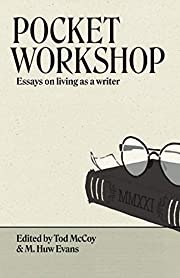
As per usual the cover isn’t great (a constant theme – see all the other examples below and throughout these blogs). This is a mix of essays from writers who have all been instructors at Clarion West. As usual with a mix of voices the essays are of mixed usefulness. There’s enough here that’s made me shelve it – but potentially come a re-read I’ll decide it’s not reference worthy enough. They say – ‘like Carion this book is not for beginning writers’ but some of the essays are pitched at beginners (I feel). I found the essays on exposition by Tobia S Buckell and Diverse story forms by Henry Lien of most use.
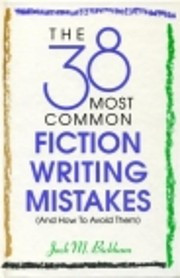
In order to revise you need to identify what mistakes you’re making. I found this short book – The 38 Most Common Writing Mistakes by Jack Bickham – an entertaining and useful read. The narrative speed chapter is one I don’t think I’ve seen elsewhere and made some lights come on when reading. I don’t think this is a must have but it won’t hurt you to read it. Like the Pocket Workshop I may decide on a re-read that it’s not reference worthy but I liked it enough on a first read to keep it. I’d say that you want to avoid the mistakes here (like ‘don’t describe a sunset’ on superfluous description) rather than spot them on an edit – but if you have made these mistakes you can edit them out. Some of the mistakes are on generally being a writer so not entirely an editing book.
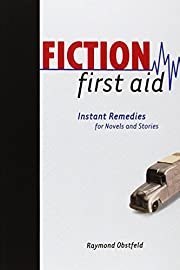
In Fiction First Aid Raymond Obstfeld takes a different approach on writing Nuts & Bolts by identifying problems with fiction such as ‘low stakes/bland personality’ under character or ‘noticeable lack, or overbearing use of, symbols’ under theme (the book is divided into plot, character, setting, theme and the writer’s life). Each chapter has a symptom, diagnosis and a treatment Again this is more a precautionary rather than a remedy. Except if you’ve had feedback I think. You are unlikely to self-diagnose most of these problems (imho) but if you’ve received feedback from a beta reader that identifies a problem like “I didn’t think this character worked” you may be able to discern why using Obstfeld’s diagnosis and fix it using his treatment. I like it overall so onto the shelf it goes.
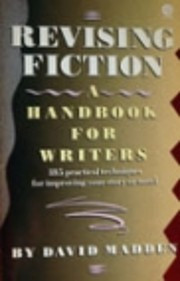
Revising Fiction by David Madden is built upon a series of questions (e.g. ‘have you used the device of interior monologue ineffectively?’) Although, again self-diagnosis is hard, this is an excellent remedy for when things are not working. It could even serve as a Nuts & Bolts instruction on how to use various techniques and tools before writing. I’ve referred to this book enough to know it deserves a place on the shelf.
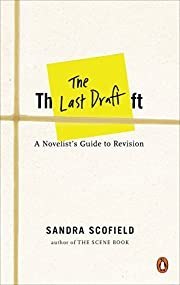
The Last Draft by Sandra Scofield is another excellent reference. The first 50 or so pages give you a whirlwind tour of how novels work and the narrative elements that they are made from. Which lays the groundwork for the rest of the book on how to revise – first take a close look at what you’ve got, then make a plan, then follow the process and lastly polish. This is a comprehensive and accessible book with a set of tools that you can use to make whatever you’ve written better. I recommend it. However the ‘polish’ section could do with expanding. But luckily the next book: Self-Editing for Fiction Writers by Browne and King supplies just that.
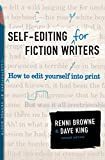
This looks at the various narrative techniques/tools – show and tell, proportion, dialogue from a ‘fix it’ perspective. So once you’ve had your diagnosis you can apply the treatment as recommended in this book. There are some exercises but the most useful part – and the reason I’m keeping it for reference – is the checklist at the end of each chapter (which complement the questions in Madden’s book.)
It’s a shame that there isn’t just one book that does the job of teaching you how to revise and self-edit but of these books I’d say that you should buy yourself The Last Draft, Revising Fiction and Self-Editing for Fiction Writers. However you can also skip the self-editing one if money’s tight as Bridget McKenna’s blog is a free (and excellent) self-editing resource.
One final editing book (not self-editing and not Nuts & Bolts) is What do Editors Do?

This is a modern version of Editors on Editing that I reviewed briefly in WAWAW 15 – like that book it’s a collection of essays from working editors on the craft of editing. It’s a lot more up to date than Editors on Editing and interesting to read alongside. There’s a lot more emphasis on commissioning and acquisitions in the modern version and, as ever, there’s a mix of good and not so good essays. I think if you were only to buy one you should go with this more up to date book. But I’m keeping both.
I’m now moving onto Nuts & Bolts of specific media – starting with how to write for comics, then theatre, then screen.
Drop a comment with your favourite writing book or tip here or email me via the Contact page. If you’re a publisher or Indie Author and would like me to review your writing book drop me a line!
February 26, 2021
Writing About Writing About Writing Review 18
Part 18 of an intermittent series where I read or re-read the writing books on my shelf to see if they’re worth keeping. See previous part here
I’ve moved onto Nuts & Bolts for specific genres
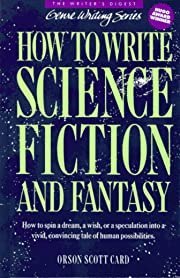
First up was Orson Scott Card’s How to Write SF&F. I’m aware that Card is a problematic figure and I wouldn’t recommend getting this book first hand – the man needs no more money to funnel into his pet hates. But. I wouldn’t recommend this book anyway – it has some useful stuff in, the MICE quotient for example (the mix of Mileu, Idea, Character and Event ), but you can get this info by Googling. Also the first chapter is defining genre – a dull and pointless exercise at the best of times I find.
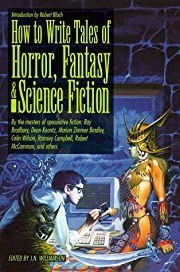
Another dud was this collection of essays on writing – there are a few good essays in here but most of them are terribly dated and not useful. At least they’ve tried with the cover (bad covers for writing books is a common theme running through this review series) although it’s a bit sexist. Love the fact he’s giving a floppy disk to the warrior. This is probably out of print and I’d say it’s not worth tracking down second hand. It also skews very much to horror with some fantasy and I struggle to remember any advice on SF at all. I don’t mind this mix, being a horror writer (allegedly) but it depends what you’re looking for. It’s a confusion of essays and feels very 1980’s (published in 87.)
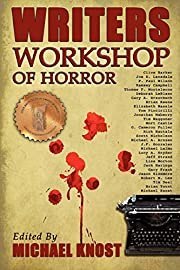
A much better series of essays are collected in this writers workshop published in 2010 (should there be an apostrophe there?) – there are very familiar names: Clive Barker, Joe Lansdale, Ramsey Campbell, Tim Waggoner etc but also some names new to me. As with all such collections there are hits and misses but in this one, for me, more hits than misses. There’s some solid advice in here, for example a very good essay on character by Gary Braunbeck I found especially useful. I’d say this was skewed more towards a beginning writer with some essays covering the basics that you should know. Publishing advice from over a decade ago is, no surprise, a little dated though.
Another good collection is Where Nightmares Come From
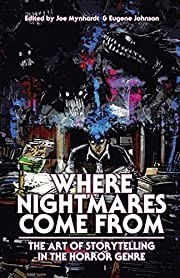
with a much better cover than the Writers Workshop (imho). Some of the same names recur (Barker, Lansdale) but it’s a much more up to date (well, 2017) than the Writers Workshop (is this like Blakes 7? where is the apostrophe?) There are more interviews in here than in Writers Workshop and I find written interviews a bit dull to be honest but the quality of the majority of the essays offsets this in my view. Again it’s skewed towards beginners but with enough substance that I felt was helpful it also earns a place on the shelf. It’s a bit more eclectic too with a nice essay on Z Nation from Craig Engler, one of the shows creators. Big fan of that show and looking forward to Black Summer 2. I’ve recently complete a rewatch of the entire series and Engler’s essay was written at the time they were working on series 4 and covers some of the origins of the series. Another essay I really liked was on Creepypasta by Michael Paul Gonzalez. Crystal Lake have another essay collection (It’s Alive) that looks like it’s in the same vein which looks interesting. But I’m doing this to cut down on the number of writing books – so I should resist, right?
I was going to move onto specific media next (I have some playwriting, scriptwriting and comics writing books) but I have a late entry to this Nuts & Bolts essay collections category with the Pocket Workshop from Clarion West which literally arrived today. I also feel that I should complete the Nuts & Bolts by going through the editing books I have. So that’s the direction you should expect next time.
Drop a comment with your favourite writing book or tip here or email me via the Contact page. If you’re a publisher or Indie Author and would like me to review your writing book drop me a line!
February 22, 2021
Review: Anna by Sammy HK Smith
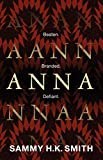
Anna by Sammy HK Smith
Coming from Solaris 27th May
Minor spoilers ahead.
“I was Anna now. I must remember. They say you can tell someone’s personality from a name. Anna was gracious. Anna was compliant. I had to be Anna.”
After finishing this I felt like I’d been emotionally beaten. Which is kind of the point I guess. Be warned this book deals with sexual violence and domestic abuse and it’s told from the point of view of the victim. It doesn’t pull any punches and is unflinching. Our main character ‘Anna’ (she refuses to give her abuser her real name) lives, at the beginning of the book, in the Unlands in a post-collapse dystopia. She is captured, ‘owned’ and branded by a man who, for the minimalist and existentially terrifying part one of the book abuses her. (You know very little about how the world works in this first part, bits and pieces are drip fed but the unknown is claustrophobic here.)
Anna is held captive, literally chained up, and emotionally and physically abused with only brief periods of mental escape playing Monopoly with another branded captive. This was difficult reading but, as the foundation of part two, absolutely necessary to understanding Anna’s later new life (trying to minimise the spoilers here) where the people she trusts and likes see her abuser as a popular and nice guy. The psychological nature of the second part was difficult to read too, but in a much more emotional way. Smith kicks you in the head, in the heart and in the gut with this. Like I said it felt like I’d had an emotional beating when I finished reading it. It’s a book I think will stay with me. Did I like it, though? I’m not sure that’s the right question. If you ‘enjoyed’ The Road and Room then this is for you. Grab a blanket, a comforting hot drink, take a few deep breaths – and read.
Powerful stuff. Recommended. Pre-order here
February 19, 2021
The Writing Life
So this week I’ve been planning for starting a new novel, revising The Museum for Forgetting and editing someone else’s novel. I have progressed on the WAWAW but think a blog on that will be better next week once I’ve finished the book I’m reading (maybe even 2 books)
I’ve been pondering my comms and possibly starting either a Patreon for the new novel (behind the scenes and other exclusive content) or an email list with similar content. Let me know in the comments if you’d be interested in either?
February 12, 2021
Writing About Writing About Writing Review 17
Part 17 of an intermittent series where I read or re-read the writing books on my shelf to see if they’re worth keeping. See previous part here
Returning from the diversion I took last week I’m back on Mount Olympus (see here for an explanation) and reading books that concentrate on the negative side of writing. I was going to write ‘less glamorous’ but that’s not strictly true is it? People love a bit of ‘pain and suffering of the artist’ (and that’s an issue – but not one I’ll speak of right now.)
This last couple of weeks I’ve read Word Work by Bruce Holland Rogers and The Writer’s Book of Doubt by Aidan Doyle. Both books of collected essays on philosophy of writing, pitfalls and stumbling blocks.
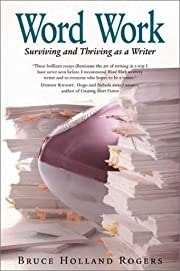
I’m still not entirely sure what that picture is all about – it looks like Mr Creosote in a purple tux and white trousers about to enter the scene. Anyway, bad covers aside (and regular readers of this blog will know that writing books generally have bad covers) this is an often useful book. Rogers covers the Writer’s life and pretty much every insecurity you’ll experience as a writer and tells you how he copes – it’s not prescriptive but descriptive and some of his solutions will gel with you, others won’t. I thought some of this book was wonderful – the chapter on toxic golf was a concept that chimed (doing something you enjoy but has inbuilt a non-joyful component can poison your joy.) The essays are divided into sections – Getting Started, Writing as if it Mattered, Matters of State (in which, for example, he talks about depression and negative thinking), Other People, Success and Letting Go. I mentioned last review that I fell between this book and the next in generation and didn’t think either spoke 100% to me. The reason this didn’t speak to me sometimes is that it errs into New Age thinking and some of the ways Rogers copes are a bit hokey. However there’s enough of interest, and use, here for me to want to keep it for reference.
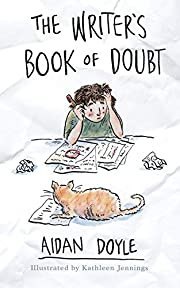
I actually like the cover for this one. Doyle’s book is a collection of essays split into sections on the negative aspects of the writer’s life. So far so samey to Word Work. But interspersed with Doyle’s own essays are essays from other writers like, for example Aliette de Bodard (who I had the pleasure of interviewing once), Jeannette Ng, Kameron Hurley, Martha Wells and others. As I said above I fall between the two books generationally but I feel closer to this book. There are sections on Doubt, Grief and Hope, Failure, Friends and Nemeses, Direction, Making Words and The Long Road. There’s a map of Submissionland, there’s the Writer’s Hierarchy of Doubt, there’s a cartoon from Tom Gauld. It’s an excellent book and one I can see myself revisiting. Even though it’s about Doubt (very much with a capital D) it’s actually quite joyful and hopeful and some of the essays have great titles (my favourite being ‘If Your Cat Doesn’t Write 1000 Words a Day, You’re Not a Real Writer’). So not only does this one stay I feel confident that if you are a writer you need this book. There is a whole section on Solidarity I didn’t mention – which has essays on representation and #OwnVoices too.
I’ll be moving back to reading Nuts & Bolts books again but now Genre and Medium specific – starting with How to Write Science Fiction and Fantasy by Orson Scott Card (and yes I know he’s problematic)
Drop a comment with your favourite writing book or tip here or email me via the Contact page. If you’re a publisher or Indie Author and would like me to review your writing book drop me a line!
February 9, 2021
I should be Writing
It was supposed to snow today. The weather report said there was 100% chance of rain in 22 minutes while I was having lunch. It didn’t rain. It didn’t snow. I watched for it.
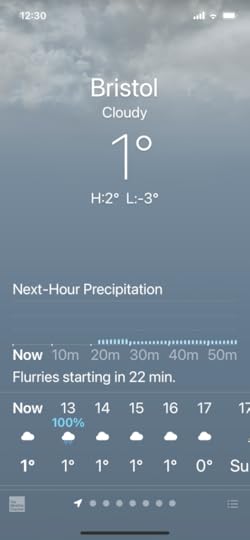
New people have moved into the house opposite. They’ve installed a log burner and new double glazing and I can see what they’re watching on their large TV, something with Richard Hammond in. I watch for a while, trying to work out what the changing pictures mean – the sky, a shot of Hammond, a landscape, another shot of Hammond.
Above their house I can see the top of a tree, bare branches thrashing wildly in the wind. When there are magpies in the tree, I count them. Once I saw thirteen. My counting song in A Tiding of Magpies only goes up to ten. Today there are none.
The sky is the colour of cigarette ash. I stare at it, wondering where the snow fell if not here.
The world outside my window is behind me, as I sit at my desk, but I turn to watch it anyway.
A car rumbles down the road breaking the silence.
I should be writing.
February 7, 2021
Writing About Writing About Writing: Another Diversion
It’s fair to say that life is pretty weird for everyone right now but mine has an extra dollop of weird glop because I’ve been made redundant from the day job and have to find a job (not a unique experience for sure) – job hunting in Covid times is weird, plus I’ve been working for the same company for over twenty years so looking outside that comfort zone is also weird. Suffice to say it’s thrown other plans awry, plans that were already somewhat awry due to Covid. This too shall pass.
Anyhow – I am progressing with WAWAW reading, having completed a re-read of Word Work yesterday and started The Writer’s Book of Doubt today. One written by a Boomer, the other by a Millenial and I’m in the middle in Gen X so I don’t quite feel either talking to me on a soul level, but anyway a review when I’ve completed the Book of Doubt. The previous WAWAW is here, where I talk a little about these books.
But in between times here’s some WAWAW adjacent reading. I read two books about famous editors:
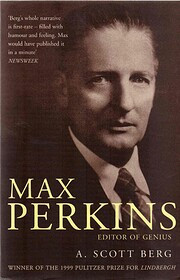
First up was Editor of Genius – a biography of Max Perkins. He was the editor of F Scott Fitzgerald, Ernest Hemingway and others. This was a well-written and constructed biography that gave you a very good insight into the man and his relationships, with his wife, his platonic affair with another woman, and, especially, his writers. If you’re interested in the 20’s to 40’s and American writers of the period then this will be right up your street. I really enjoyed it – but I must say that the world of publishing that this describes, and the type of editor that Perkins was, are long gone. There are a lot of common features with the next man I read a biography about (Saxe Commins – see below.) They both suffered through having to work with writers with big egos and personal problems. They both had a massive hand in drafting and, of course, editing their geniuses and they both suffered ill health through overwork.
Perkins sounds as though he was, in part, insufferable and yet it seems that many people held him in great affection. A complex figure for sure. This was a fascinating study.
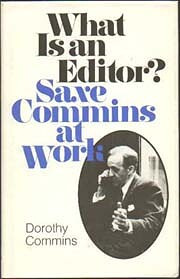
The other biography was of Saxe Commins. Commins was Faulkner’s editor, as well as T S Elliott among others. This is a book written by his wife after his death and she is not a biographer. A much less polished and more haphazardly structured book it nevertheless painted a vivid picture of the man. It just took a while for me to get on with the chaotic style. Told through reminiscences and letters, with the occasional journal entries in Commins’s own hand I feel like I would have preferred Commins’s company than Perkins’s. The most compelling of the relationships detailed in the book was with Eugene O’Neill and his marriage to the (portrayed as) pyschotic Carlotta who went against her husband’s wishes to publish a play that he’d asked not to be published until twenty years after his death.
Both Perkins and Commins had much closer relationships with their authors than I believe is desirable, or even possible, today. But how much did they contribute to the Nobel Prize winners’ success? Perkins was pathological about how much the editor must fade into the background, Commins was also self-effacing but the work they did was obviously hugely influential on Twentieth Century literature.
You won’t get much in the way of editing tips in these books (although there are some) but if you’re a bibliophile and have read the famous authors who were these great editor’s friends and clients you may enjoy these books.
Drop a comment with your favourite writing book or tip here or email me via the Contact page. If you’re a publisher or Indie Author and would like me to review your writing book drop me a line!
January 26, 2021
Writing About Writing About Writing Review 16
Part 16 of an intermittent series where I read or re-read the writing books on my shelf to see if they’re worth keeping. See previous part here
This time round I’ve skipped a week – things going on, you know how it is -lockdown, day jobs, one thing crowds out another…
I’ve re-read a few classics, books that you’ll see over and over on lists of writing books you should read. I’m going to break with convention and tell you you don’t need to read them.
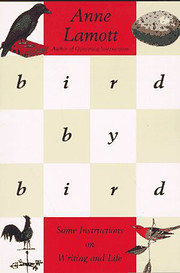
Anne Lamott’s book Bird by Bird does have a few nuggets of gold in but frankly they can be summarised easily (all first drafts are shit, you should break a complex task down into small pieces etc.) and covered elsewhere without Lamott’s ‘humour’ – you know when people have a self-belief that they’re ‘zany’ which is never something you should self-label with (imho.) In an early chapter she tells you that she grew up ‘ugly and awkward’ and had to become ‘funny’ to cope. YMMV but there is too much autobiography in here to want to wade through to get to the information. Too much noise to signal.
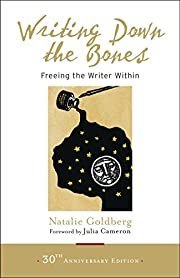
Writing down the bones is also one of those books that gets near universal acclaim and yet having read it a second time I found too touchy feely and not very useful on the subject of How to Be a Writer. The problem with both Goldberg and Lamott is that they are ‘life writers’ not fantasy (in the broader sense) and more about the writer than writing. As I saw in a review: “More about the leaves than the tree.”
If you want to be a poet or a memoirist you might get more out of these two books than I did.
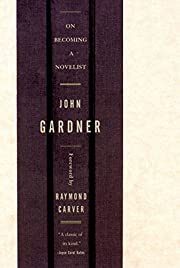
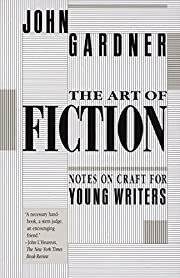
John Gardner is probably better know for teaching writing than his own books (I tried to read Grendel and it was pretentious and not very good, again ymmv) and if Lamott and Goldberg are two garrulous aunts full of vim and vigour then Gardner is a fusty older uncle who’s spent too much time in academia: dry and snobbish. I think these two books have got useful stuff in but oh boy Gardner has to hit you with his opinions about Literature (definitely with a capital L) which is a higher vocation don’t you know. This is a quote from near the beginning of the Art of Fiction: “What is said here, whatever use it may be to others, is said for the elite; that is, for serious literary artists. The most elegant techniques in the world, filtered through a junk mind, become elegant junk techniques.”
That said the first section of On Being a Novelist (The Writer’s Nature) and part 2 of The Art of Fiction (Notes on the fictional process) do have some useful and interesting stuff in. But, you can find the nuts and bolts of the Art of Fiction elsewhere (without the pressure to be a literary artist) and neither section is good enough to wade through the rest of the dust to get to.
So that’s four books I don’t need on the shelf.
Next up is Word Work by Bruce Holland Rogers (subtitle – ‘Surviving and thriving as a writer’) and then The Writer’s Book of Doubt. Then I’ll move on to the genre specific (SF&F and Horror) and medium specific stuff (Scriptwriting for stage screen and comic.) And then…
Still plenty to keep this series of posts going for a while
Drop a comment with your favourite writing book or tip here or email me via the Contact page. If you’re a publisher or Indie Author and would like me to review your writing book drop me a line!
January 10, 2021
Writing About Writing About Writing Review 15
Part 15 of an intermittent series where I read or re-read the writing books on my shelf to see if they’re worth keeping. See previous part here
Well it’s 2021 and I’ve read a whole bunch (although only skim read a couple tbh) of writing books
I realised that in a previous article I said I was reading Dialogue by McKee but then didn’t say anything about it
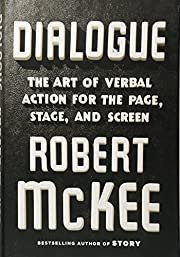
(as usual a very dull cover)
This is not as immediately ‘classic’ as Story but it is a very good book – if a little padded and the material stretched for more pages than seem necessary. However there are few books on dialogue, and the others I’ve read in the past were fairly poor so I’m keeping this one until something better comes along.

Back with the Structure books I re-read Meander, Spiral, Explode by Jane Allison and although I didn’t enjoy it as much as I had on a first reading I still found it full of inspirational ideas on how to introduce pattern into your writing – if you’re a bit bored of the usual 3 act structure.
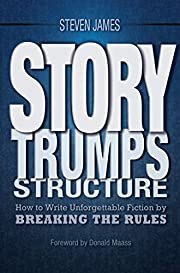
This book, Story Trumps Structure, by Steven James, was recommended by Donald Maass – who, you may remember, I read a couple of Nuts & Bolts books from and decided to discard. This is a book full of good advice and comes from an angle of ‘structureless’ writing is better because story is king. Although of course there is a structure (it’s even drawn in the book – a semi-spiral with Orientation, Crisis/Calling, Escalation, Discover and Change being steps upon the path.) However as a Nuts & Bolts guide this is one of the good ones – full of advice on the macro level that I found useful and it’s a keeper. Not sure it counts as a ‘structure’ book though… the advice from James is to throw out your outlines, ignore the 3 (or 4,5 or more) act structure and just write – not many books tell you how to ‘pants’ and if you are a pantser this may be the writing book for you.
Some ‘tangent’ books before I got to the next category of “Mount Olympus” – in WAWAW first post I covered the 4 main categories of writing books:
How To English – Guides for how to craft a sentence. Nothing in these about character or story.
Nuts & Bolts – Creative writing workshops in book form
On Mount Olympus – The philosophy of writing & the writing life
Golden Parachutes – The business of writing
So far I’ve been covering the How To English and the Nuts & Bolts books. I’ll return to Nuts & Bolts when I come to specific Genre books (e.g. How to Write Science Fiction and Fantasy) but before I do I’ll cover the Mount Olympus books.
Anyway, those tangent books (i.e. off shelf or off category)
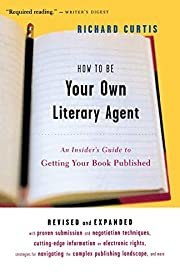
How to be your own Literary Agent by Richard Curtis (not that Richard Curtis) – this is a comprehensive explanation of what Literary Agents do and what a Literary Contract contains. I don’t have a lit agent (and Curtis advises that even writers that do can benefit from this book – which I’d agree with) and since I have a couple of contracts coming up I thought I’d better gen up on the subject. Highly recommend this book – it’s a little out of date (publishing has changed massively in the last 20 years) but the basics are gold.
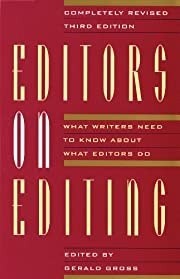
This is a collection of essays written by working editors split into two sections – Theory and Practise. The subtitle is: What Writers need to know about what editors do. Which isn’t really backed up by the content. Because it’s written by multiple authors (editors) it’s a mixed bag. There are plenty of essays on specific genres too, some of which are of no interest to me. However there’s enough good stuff in here I’m of a mind to keep it. It’s very dated (as I said Publishing has changed a lot) but some of the philosophy of how to be a good editor is eternal.
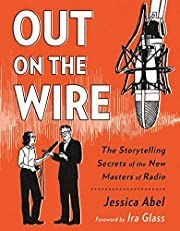
Out on the Wire by Jessica Abel was a birthday present (yes I completed another orbit in January) and is a graphic novel exploring the new(ish) medium of narrative podcasting. Abel has written a previous visual guide to radio about This American Life and there is an excerpt of the previous book inside. However she refers to the previous book a lot – and sometimes says things like “we covered how this is done in the previous book” – about information she didn’t include it in the excerpt. As the first book appears to be out of print and hard to get hold of (in the UK at least) this was more than a little annoying. However the material is good apart from that quibble and the visual of ‘being lost in a German forest’ for that moment in every story when you can’t see the wood for the trees is very good (as are a few rules of thumb for creating good stories) so I’ll keep it.
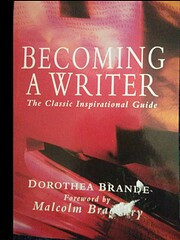
One of those I skimmed was Dorothea Brande’s Becoming a Writer – it’s interesting to compare and contrast with Brenda Ueland’s If You Want to Write which came out not that long after (Brande’s book was 1934, Ueland’s 1938.) They’re a world apart. Brande comes across as schoolmarmly, po-faced even (she married an actual fascist) and it’s all about ‘doing what’s best’ whereas Ueland is joyful, passionate and independent and doing what’s fun. Of the two I’d much rather spend time with Ueland than Brande and therefore I know which of the two I’ll keep on my shelf. (Writing is hard work but it also can be fun – Brande is all about the work, Ueland is all about the fun. Maybe you should read both and find a balance?)
These are examples of the On Mount Olympus – how to be a writer – style book rather than have any nuts and bolts advice on how to write. Brande seems to have originated the ‘morning pages’ thing – where writers are supposed to rise an hour earlier than they’d normally and write. I always thought that was harsh advice and now I know that Brande was a fascist it totally makes sense. Ignore her. Be more Ueland (her Wikipedia entry includes this fun fact: “By her own account, Ueland had many lovers.”)
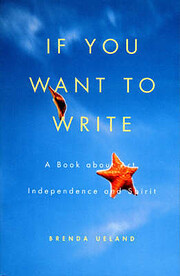
I’m currently off on another tangent, re-reading Damon Knight’s excellent Creating Short Fiction which is another fundamental resource. If you want to write short stories this is the best guide to doing so I’ve read. One of my goals this year is to write (and hopefully publish) more short stories so am exercising my brain on the subject by re-reading this book.
After I’ll be back climbing Mount Olympus with some more classics – Bird by Bird, Writing Down the Bones and John Gardner’s On Becoming a Novelist. But that’ll be WAWAW review 16.
Just a reminder that my first story collection – A Tiding of Magpies – is now available to buy again in both ebook and paperback. Amazon may show the paperback as “being out of stock” but apparently they do that with all Print On Demand books – something to do with their algorithm changes during Covid reprioritisation of products. I’ve been assured that if you order a physical copy there’ll be no delay in getting one.
Drop a comment with your favourite writing book or tip here or email me via the Contact page. If you’re a publisher or Indie Author and would like me to review your writing book drop me a line!
Pete Sutton's Blog
- Pete Sutton's profile
- 13 followers



